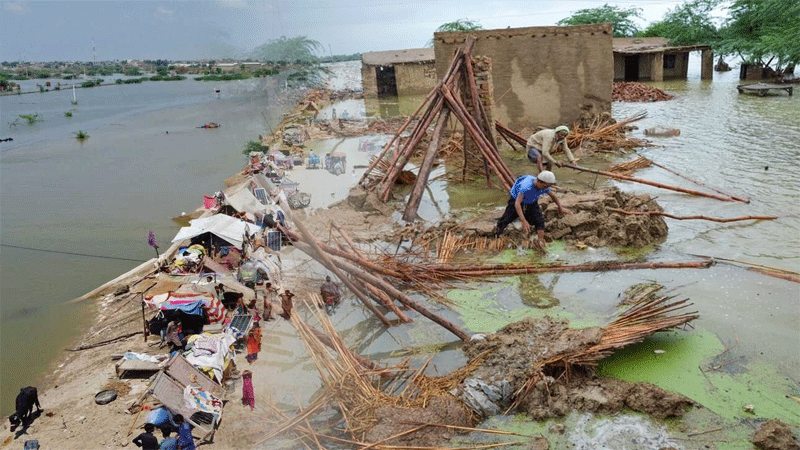Pakistan lost more than US$30 billion, or 6.4 trillion rupees, as a result of the devastating floods that struck the nation last year.

Shiraz Ali Shah Recovery Specialist at UNDP Pakistan stated that “Pakistan lost more than US$30 billion, or 6.4 trillion rupees, as a result of the devastating floods that struck the nation last year. A total of 900 billion rupees were budgeted for the Public Sector Development Program (PSDP) for 2021–2022.”
This indicates that more than six PSDPs’ worth of development gains were destroyed by the floods. The most vulnerable groups in society—women, girls, the elderly, and people with disabilities—are disproportionately impacted by this.
“The repeated losses from disasters have highlighted the need for tackling development from a different perspective. To achieve this, there is a need to ensure that all development is resilient and disaster- and climate proof. This can be achieved by getting a better idea of the hazard profile of the area, planning accordingly, and mainstreaming disaster and climate resilience in the development planning processes at all levels “,said Shairaz Ali.
With the aim of moving beyond relief and accelerating resilient and sustainable recovery in the flood-affected areas in an integrated manner, UNDP Pakistan launched its 2022 Flood Recovery Program.
The program integrates the needs identified in the Post Disaster Needs Assessment (PDNA) and aligns with the national Resilient Recovery, Rehabilitation, and Reconstruction Framework (4RF).”The floods have severely impacted livelihoods and disrupted economic activity. The need is for people to stand up again”, UNDP Resident Representative Mr. Knut Ostby stated at the program’s introduction.
The program’s goal was to assist Pakistan in achieving a resilient and inclusive recovery from the effects of climate change. Since the start of the floods in Pakistan, Ms. Anita Turab, Joint Secretary, Economic Affairs Division (EAD), Ministry of Economic Affairs, said, “The government and people of Pakistan require the assistance of the international community and our development partners because the scope and magnitude of this disaster event exceed current national capabilities”.
This program is based on four main pillars that are meant to rebuild community infrastructure, livelihoods, and government services while also enhancing environmental protection and disaster resilience.
The goal of pillars are to jump-start the recovery process by addressing the most pressing recovery needs and laying the groundwork for longer-term resilient and inclusive development, putting the most emphasis on the most vulnerable groups in society.
Disaster risk reduction and adaptation to climate change are important steps in reducing the impacts of climate change on a country’s development and people.
In Pakistan, reducing risk factors can help to prevent or delay losses and damages, while resilience-building measures such as early warning systems, evacuation plans, and infrastructure improvements can help to reduce the impacts of climate-related events. Adaptive human action, such as changing livelihoods, adopting new technologies, and improving access to education and economic opportunities, can also help.
It is crucial to remember that in order to be successfully implemented, these adaptation strategies need the support of both government and non-government organizations. In addition, reducing the effects of climate change on particularly vulnerable nations like Pakistan can greatly benefit from international cooperation and financial support.